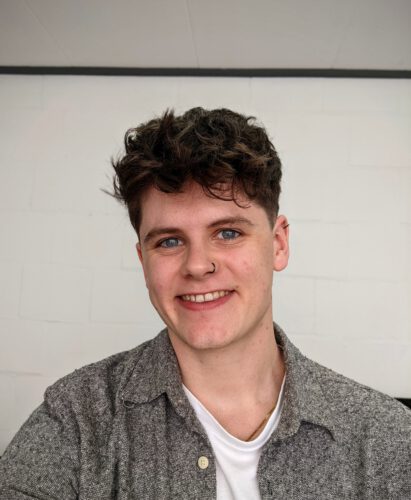
Why did you decide to do the IDA Master?
When I was finishing my bachelor’s, I didn’t have one clear research path that I wanted to follow. I was especially interested in the fields of biological, social and cognitive psychology, but I also wanted to have a much stronger knowledge of statistical methods and how to DO research. A lot of master’s programmes I looked at seemed to be very focused on pushing you toward quite specific research positions or careers. However, the IDA ReMa seemed like a perfect multidisciplinary course which could combine all of these interests and more.
What has been your favourite course and why?
I’m not really one to pick favourites, but the course I feel I have benefited the most from has got to be a Multivariate Analysis statistics course. It was definitely the most difficult course I’ve ever taken and it sometimes made me doubt if I was in the right programme, but I always felt like I was learning something and by the time the exams were done I was shocked at how much I’d improved. I really enjoyed Theoretical Models of Individual Differences as well, the material was always interesting and the class discussions really helped me to engage more in understanding literature.
Do you experience stress in your studies/pressure? How do you deal with it?
Yes, of course. I have a quite a perfectionist streak, so sometimes it can be difficult for me to accept that not everything needs to be my very best work. Sometimes it’s more important to take a day off and look after your mental health, than to get top marks on an assignment. I think it’s also been useful to talk to my classmates and realise that my high stress levels aren’t an ‘individual difference’ but actually everyone is feeling the same. This makes it easier to figure out as a group how we can make things a bit less stressful for ourselves 🙂
How can your knowledge from the IDA master be useful for the real world?
It depends on what you call the real world! For research, the knowledge I’ve already got from the IDA Master will be invaluable. Hard-skills in statistical and research methods, a strong basis in critical analysis and a much deeper understanding of topics that actually interest me, will all be very useful to me in the future.
Why do you think it is important to study what you study?
Psychology is still such a young discipline compared to other sciences and there is so much that we still don’t know. Studying individual differences helps to fit together more of the puzzle pieces that we don’t yet understand about the human mind. In today’s world there is an increasing push for everything from technology to medical treatment to therapies to entertainment and more, all to be tailored to provide the best possible experience for the individual. Researchers specialising in psychological individual differences are in an ideal position to contribute to these advances.
What is the most fascinating you have learned?
That some of the most widely used and popular theories and measurements, are often full of flaws and problems.
What motivates you to keep studying?
The more that I learn, the more there is that I feel like I don’t know!
How are you experiencing the relationship to your teachers?
I’m really enjoying the student/teacher relations in this programme. All of the interactions I have with lecturers, supervisors and other staff, are very respectful and supportive. The small class size seems to help a lot in creating a relaxed and open environment to learn.






Be First to Comment